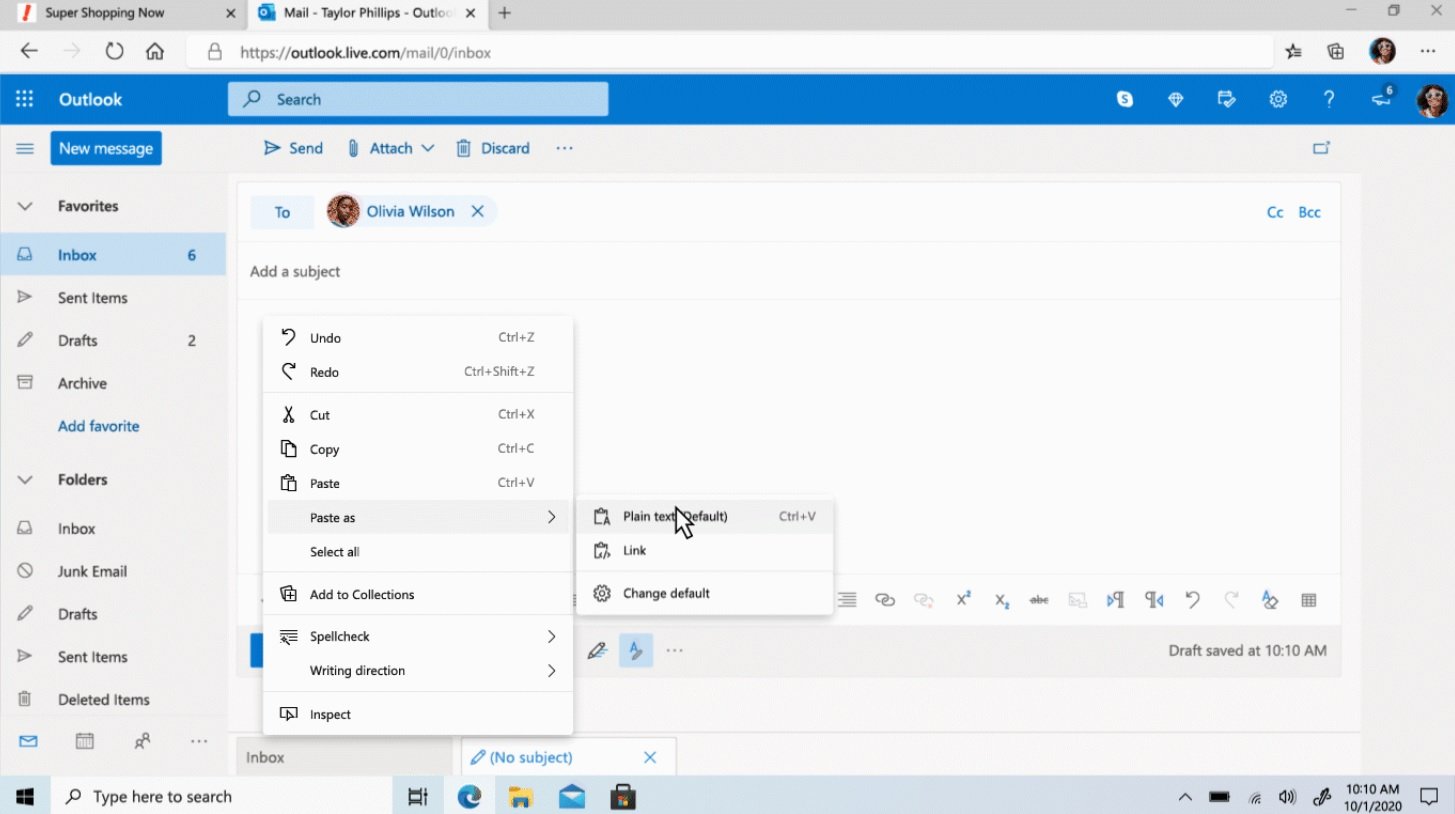Microsoft Edge will change the way you copy and paste links in email post officey, applications or websites. The feature is officially called “Friendly URLs” and will be coming in an update to Microsoft Edge later this month.
Microsoft says the new feature will let you copy URLs from line addresses and paste it as plain text. For example, if you copy the Outlook URL, you will be able to paste the URL as a normal URL (which includes HTTPS and .com) or simply as “Outlook”.
Plain text is a new option that will automatically convert URLs to a readable format. You will be able to use the new feature with the keyboard shortcut Ctrl + Shift + V or you can also right-click anywhere in the text box to access the new pasting options, as shown in the image below.

Η default function for Microsoft Edge URLs can be configured and changed through the program's settings panel browsing.
With this new feature, Microsoft Edge aims to better display long and ugly URLs that you want to email to a colleague or your friends. The friendly URLs feature is especially useful for shopping websites that have very long URLs with too many characters, code monitoring etc.
As mentioned above, Microsoft plans to release this feature later this month and believes that the new copy and paste experience could make a huge difference during the shopping season.
In addition, Microsoft has finally launched the new "Web Capture" that will allow you to take screenshots of web pages and comment directly on images through the browser.





